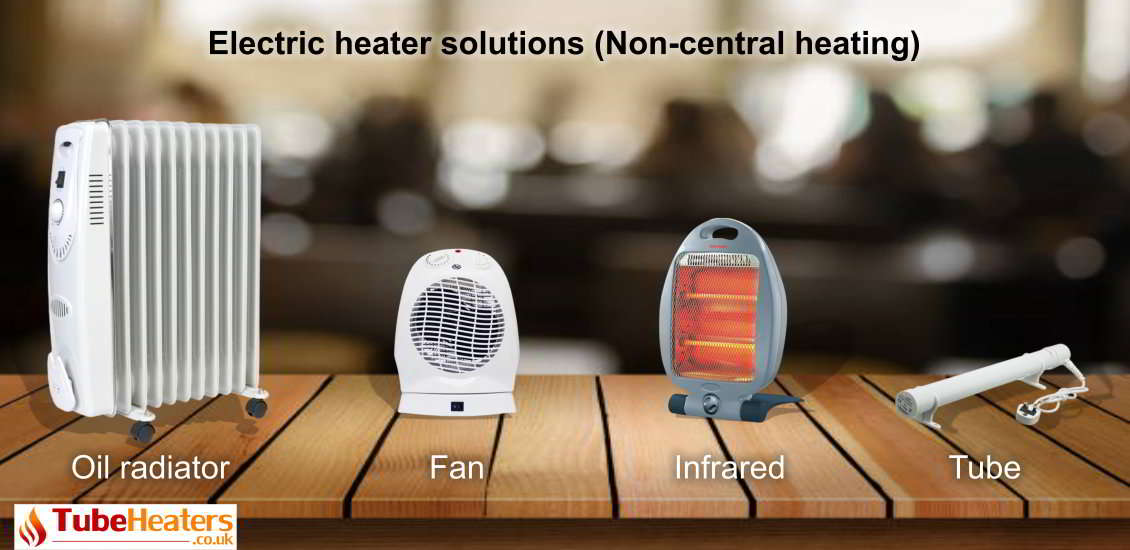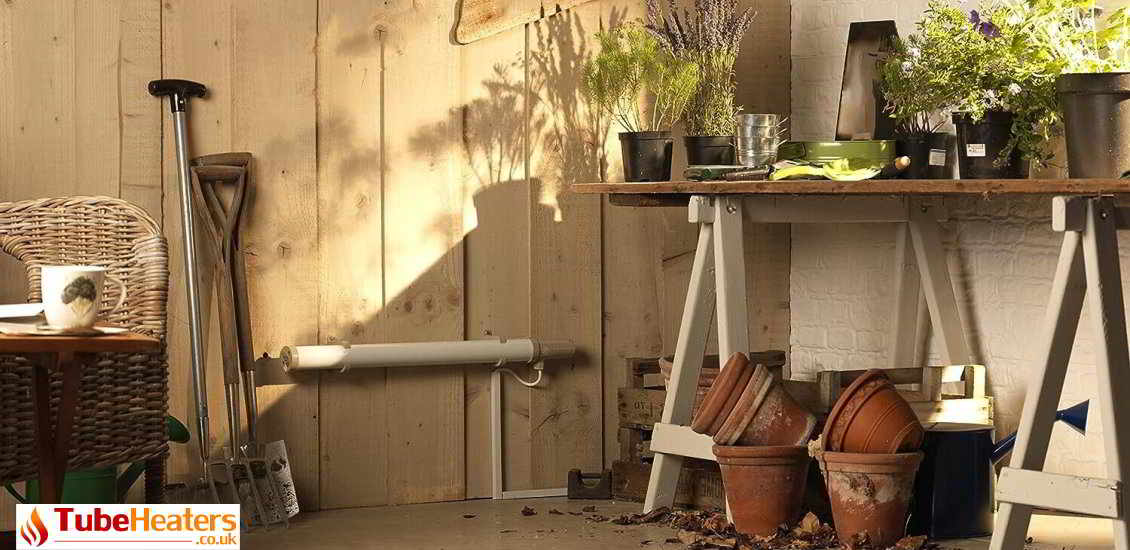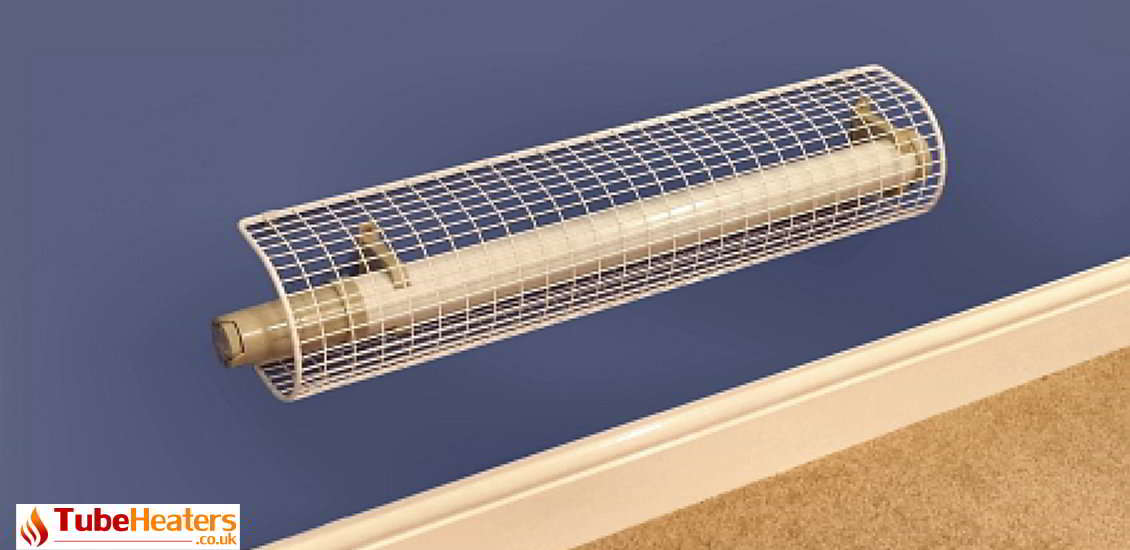
Electric heaters have been a source of comfort in homes for decades, providing warmth during the cold months. Many are questioning the affordability of these devices due to the rise in energy costs. One claim that has caught the attention of many is the existence of 1p per hour electric heaters. But does such an economical option really exist? Let's delve into this topic to find out.
Comparing Electric Heater Solutions (non-central heating)
Oil radiator heaters (Average 1500W)
An oil radiator heater is a type of electric heater that uses oil or fluid as a heat transfer medium. It is a popular and cheap-to-run heating solution for UK homes, especially for rooms that do not have a central heating system or need an extra boost of warmth. Oil radiator heaters are efficient, safe, and quiet, and can keep on radiating heat even after they are turned off. Depending on your needs and preferences, they come in different sizes, shapes, and features.
The power consumption of oil radiator heaters depends on their wattage and how long they are used. The average oil radiator heater has a wattage of 1500W (a typical range of wattage for oil radiator heaters is between 500W and 2500W), which means it uses 1.5 kilowatts (kW) of electricity per hour. However, some oil heaters may have lower or higher wattage, depending on their size and features.
Fan Heaters (Average 900W)
Fan heaters are devices that use a fan to blow hot air into the room. They can provide a quick and easy way to heat up a space, as they can warm the air rapidly and evenly. Fan heaters are also very portable and versatile, as they can be moved around and placed anywhere in the room. Fan heaters are also very affordable, as they are widely available and cheap to buy. However, fan heaters are not very energy-efficient, as they use a lot of electricity to heat the air.
The average wattage of fan heaters depends on the model, size, and features of the heater. However, a general range of wattage for fan heaters is between 500W and 2000W.
Fan heaters can also be noisy, as they have a fan that can create a loud whirring sound. Fan heaters have the potential to dry out the air and spread dust and allergens, which can have a negative impact on your health and comfort.

Infrared Heaters (Average 600W)
Infrared heaters are devices that emit infrared radiation, which is a natural form of heat that we experience from the sun. Infrared heaters do not heat the air, but rather the objects and people in the room directly. This means that they can provide a fast and efficient heating solution, as they do not waste energy on heating the surrounding air. Because they help lessen dust, allergies, and mould in the air, infrared heaters can likewise enhance your health and well-being. Infrared heaters come in a variety of sizes and forms, from panels that can be placed on walls or ceilings to recessed heaters. Infrared heaters are also very energy-efficient, as they convert almost 100% of the electricity they use into heat.
The average wattage of infrared heaters varies depending on the type, size, and model of the heater. The general range of wattage for infrared heaters is between 300W and 1500W.
However, infrared heaters can be expensive to buy, and they may not provide enough heat for the whole room, as they only heat the objects and people in their direct line of sight.
Tube Heaters (Average 150W)
Tube heaters are long, thin, and low-wattage electric heaters that can be mounted on walls or floors. They produce a gentle and even heat that can warm up a room without wasting energy. For small spaces, like bathrooms, hallways, or conservatories, where a constant and comfortable temperature is needed, tube heaters are the perfect choice. Tube heaters are also very cheap to buy and run, as they use very little electricity.
The general range of wattage for tube heaters is between 60W and 240W.
For example, a 120W tube heater can cost as little as 3p per hour to run. However, tube heaters may not be suitable for large or poorly insulated rooms.

Other heating options
There are also more heating options but these are considered central heating solutions and will not be covered in this article.
How much does 2000W cost per hour?
To calculate the cost of running per hour, you need to multiply the wattage by the electricity price per kWh. The average electricity price per kWh in the UK is 27.69p (1 January to 31 March 2026), but this may vary depending on your supplier, tariff and region. Therefore, the cost of running a 2000W heater for one hour is:
(2000 x 0.27) / 1000 = £0.54 per hour
This means that if you use a 2000W heater for 8 hours a day, the cost is:
0.54 x 8 = £4.32 per day
What heater uses the least electricity?
Let's compare the running costs of different types of heaters.
|
Cost by hour |
Cost by day |
Cost by month |
|
|
Oil radiator heaters (Average 1500W) |
£0.41 |
£9.86 |
£299 |
|
Fan Heaters (Average 900W) |
£0.25 |
£5.98 |
£179 |
|
Infrared Heaters (Average 600W) |
£0.16 |
£3.98 |
£119 |
|
Tube Heaters (Average 150W) |
£0.04 |
£0.99 |
£29 |
Do you want to calculate the power consumption of your heater? Try our electricity running cost calculator at the end of this article!
What is the Cheapest Electric Heater to Run Per Hour?
When it comes to the cheapest electric heater to run per hour, tubular heaters take the lead. These heaters were once known to operate at a cost of 1p per hour in the UK. However, with the increase in the energy cap that took effect in October 2022, the cost has risen to 1.6p per hour for the 1ft 60Watt model. Despite this, they still remain the most economical option for home heating (not for central home heating).
While the cost might seem enticing, it's essential to understand how these heaters work and their suitability for different environments before making a purchase.

Understanding Tubular Heaters
Tubular heaters stand out for their unique mode of operation. Unlike other heaters that work by heating large volumes of air to increase ambient temperatures, tubular heaters directly heat the object, which in turn releases heat via convection. This method of heating creates a comfortable and draft-free environment.
However, these heaters are not designed to provide intense warmth. They are sold for 'background warmth'. This makes them ideal for areas that are not insulated or detached from the main heating source in the house, such as greenhouses, conservatories, wardrobes, bathrooms, sheds, kennels, airing cupboards, and sheds. They are also very popular for heating campers and boats.
Safety and Other Advantages of Tubular Heaters
Tubular heaters are not only affordable and efficient but also safe to use. They often come with guards to prevent direct contact and don't pose the risks associated with heaters with hot elements or paragon heaters. They also don't give off dangerous gases.
Additionally, tubular heaters don't blow air around, causing fewer issues for people with allergies (dust, pet hair, mould spores, etc).

The Best 1p per Hour Electric Heaters
While we currently don't have any 1p per hour electric heaters (but we are really close on this), our range of low-cost, energy-efficient heaters at Tube Heaters offers excellent value for money.
Morris' traditional "ECO Heat Range" of tubular heaters includes:
In addition to our existing range, we are excited to introduce our new "Thermostat Heat Range" tube heaters. These models come equipped with built-in thermostats and feature lower wattage options, making them even more energy-efficient. The wattages for this range are as follows: the 1ft model uses 55W, the 2ft model uses 90W, the 3ft model uses 135W, and the 4ft model uses 190W. Notably, the Morris 1ft tube heater has an incredibly low operating cost of just £0.01 per hour, making it an excellent choice for budget-conscious consumers looking to save on energy bills.
These heaters are the best option for supplying warmth to your house without going over budget because they are not only affordable but also dependable, safe, and energy-efficient.
Conclusion
While the notion of 1p per hour electric heaters might seem like a myth due to fluctuating energy tariffs, it may very well be a reality with our new offerings. Tubular heaters continue to provide a low-cost, energy-efficient heating solution, making them a budget-friendly option for maintaining a comfortable temperature in spaces that aren't fully integrated with the main heating system. Their safety features and ability to reduce allergens make them an excellent choice for many homes.
With the diverse range of options available at Tube Heaters, you can select a heater that meets your needs and budget while ensuring your space remains warm and inviting.
The calculator uses the current standard electricity tariff in the UK (27.69p/kWh) (1 January to 31 March 2026)


About the Author: Noah Williams
TubeHeaters.co.uk’s lead heating consultant, specialises in low-energy solutions for sheds, cabins and more. His 10-year track record includes optimising heat output, preventing condensation, and cutting energy bills—all while prioritising safety and durability. Rely on Noah’s expertise to find the perfect balance of warmth and efficiency.

Leave a Comment